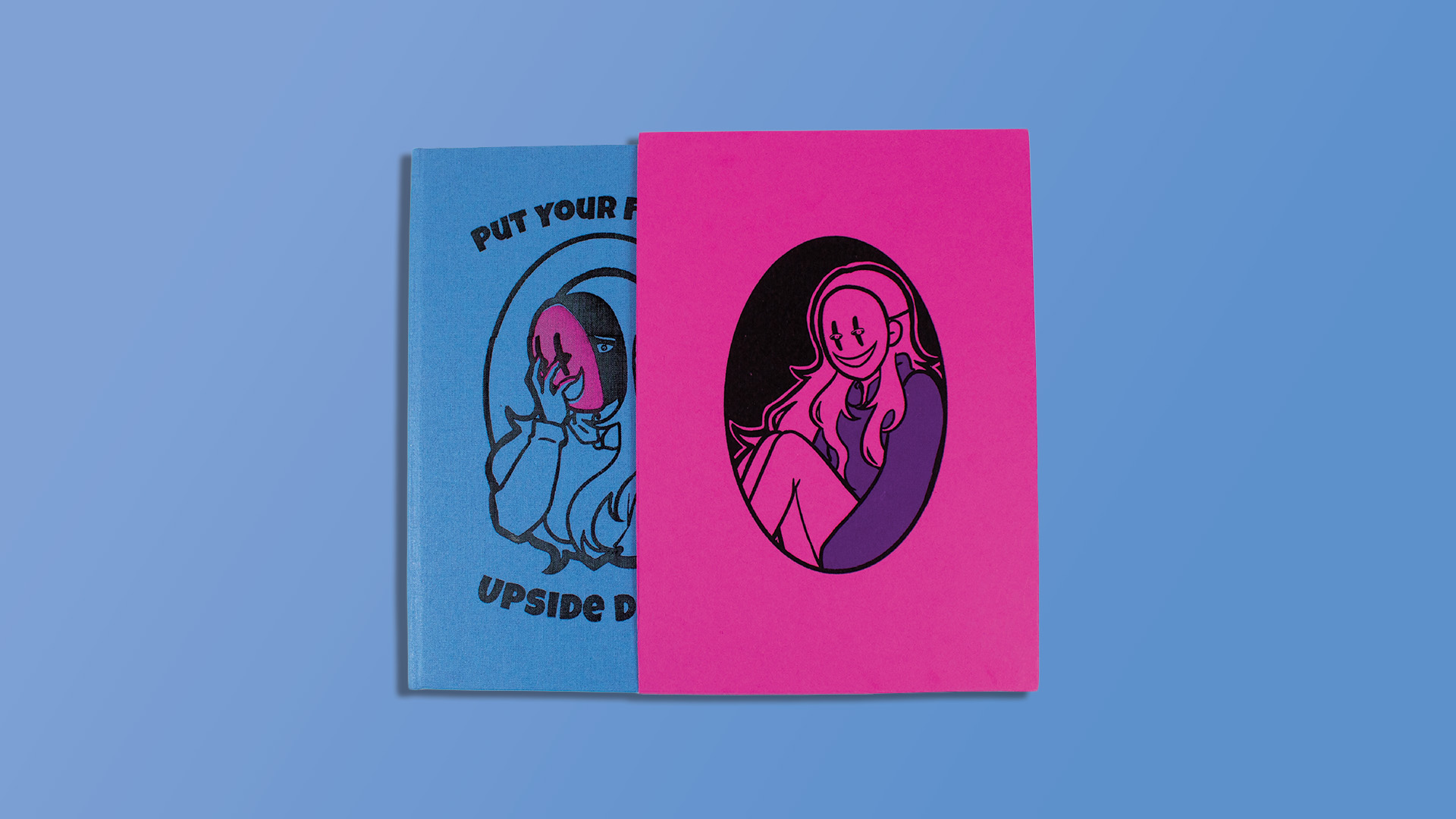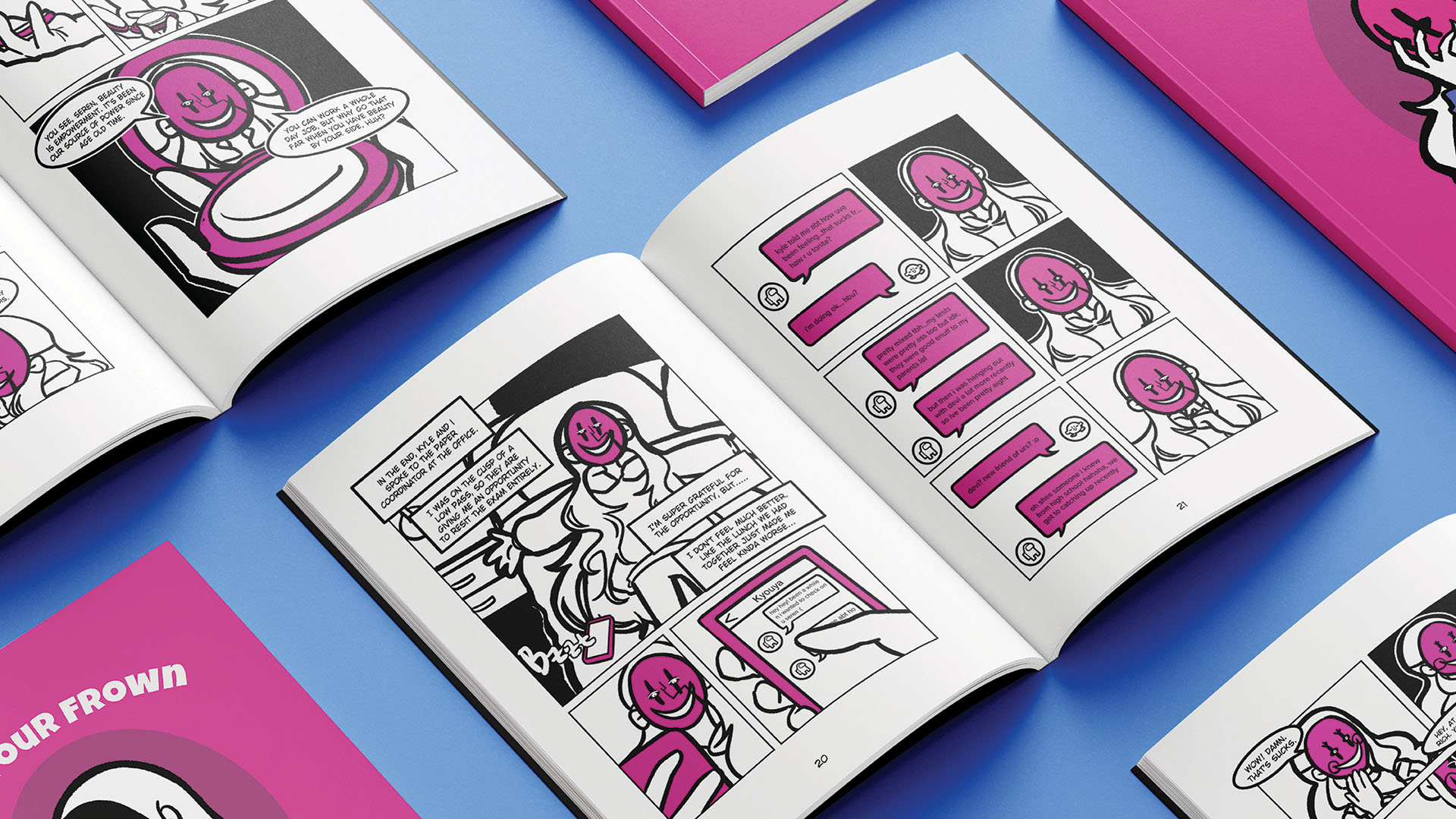

Cyrelle Beanica Antonio Melendrez
"Put Your Frown Upside Down"
Put Your Frown Upside Down
"Put Your Frown Upside down" is a graphic novel, which is the result of a practice-led research project focusing on toxic positivity.
In the city of Gaudium, the priority in life is happiness. To enforce a constant positive atmosphere, citizens are required to wear smiling masks.
Seren is a nineteen-year-old college student. Completely average, and simply trudging on with her day-to-day life as the “completely average one” between her award-winning mother, beautiful sister, and high-achieving best friend.
However, things go a bit awry as Seren finds herself in one of the worst months of her life! Looking to her family and friend for help, how will she overcome these issues?
And more importantly, how will she keep herself together in spite of all of this?
"Put Your Frown Upside Down" is a graphic novel project exploring a coming-of-age story that showcases toxic positivity and the suppression of emotions and the effects within the psyche of a young adult woman. It is intended for a mid-teen to early adulthood audience, focusing on but not limited to a woman’s experience.
The graphic novel is set in the city of Gaudium, a world where happiness is the normality, and in order to preserve optimism every person is to wear a smiling mask that reflects their emotions. The story features Seren, a nineteen-year-old girl within one of the worst few weeks of her life as well as the many close people who give her advice on how to handle each trial. It also presents minor commentaries on topics such as position within corporate systems, pretty privilege, and religion-based optimism in the form of the supporting characters Kyle, Charice, and Evelyn.
Toxic positivity is a phenomenon involving the dismissal of negative emotions in favour of positive emotions (Quintero & Long, 2019). It may also be perceived as gaslighting, ranging from being forced onto others to self-infliction, as it involves questioning the legibility of one’s emotions. Other effects of toxic positivity include emotional inhibition and hesitation to express feelings outside of optimism. In order to provide perspective to this phenomenon, the graphic novel provides itself as a medium of exploration. No longer simply being a means of entertainment, graphic novels have become a voice for many authors such as Alison Bechdel (Fun Home) and Marjane Satrapi (Persepolis) on their autobiographical experiences, as well as depicting other’s experiences as an ethnography (Maus, by Art Spiegelmann). It also plays a role in being easily digestible for a younger audience, with visual language serving as key to understanding.




